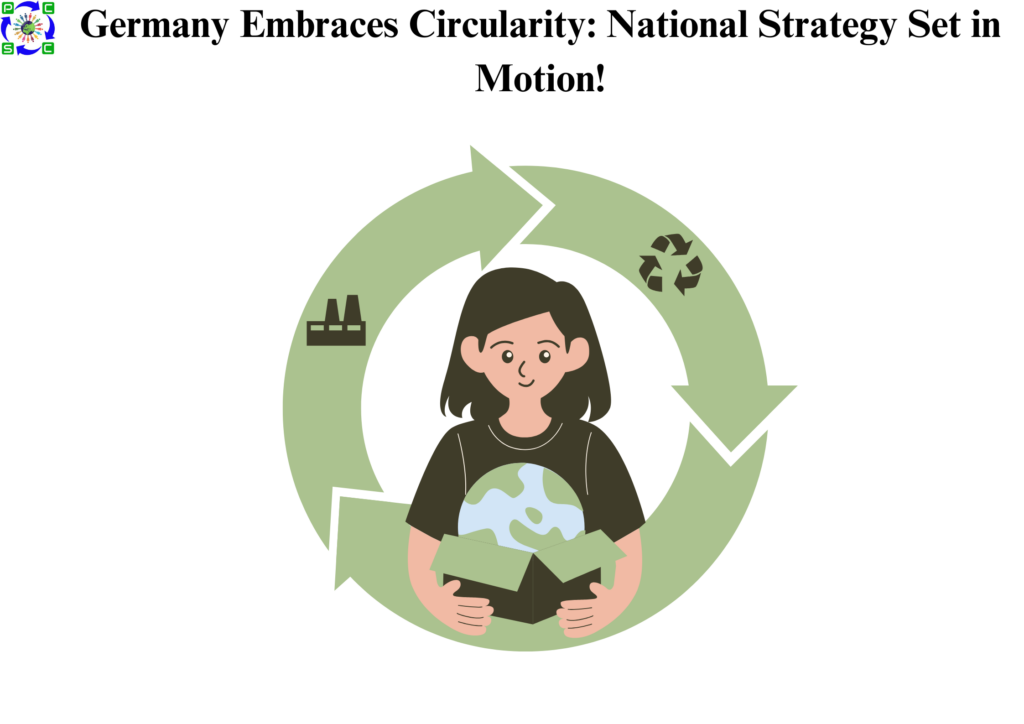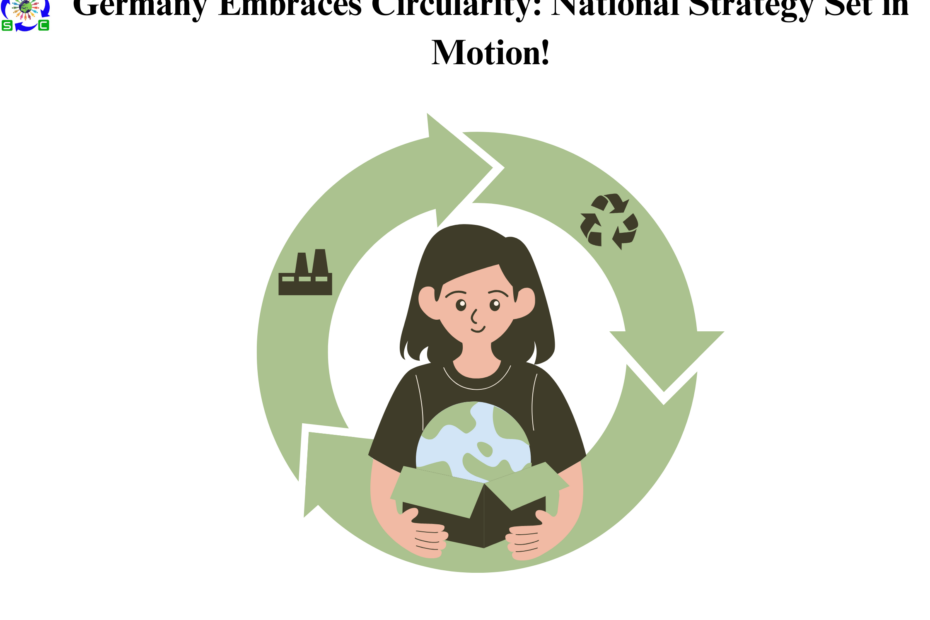 Germany’s National Circular Economy Strategy: A Game Changer
Germany’s National Circular Economy Strategy: A Game Changer
On December 4, 2024, the Federal Cabinet adopted the German National Circular Economy Strategy (NCES), a milestone initiative consolidating Germany’s sustainability objectives under the “Circularity Made in Germany” banner. This strategy aims to transition towards a holistic circular economy, fostering sustainability while enhancing economic resilience. Key elements of the NCES include:
-
A Circular Economy Platform: Engaging stakeholders across industries.
-
Roadmap 2030: Outlining specific goals and measures.
-
Monitoring & Evaluation System: Ensuring accountability and progress tracking.
-
Regulatory Framework & Financing Mechanisms: Strengthening compliance requirements and financial support.
For businesses, NCES presents a dual landscape of opportunities and challenges—offering pathways to sustainable growth while tightening compliance requirements. Companies that proactively integrate circular principles into their business models can gain a competitive edge, access funding opportunities, and contribute to Germany’s ambitious sustainability goals.
Goals of the German NCES
The NCES is designed to make Germany climate-neutral, economically competitive, and resource-efficient by 2045. Aligning with the EU Circular Economy Package (2018) and the EU Circular Economy Action Plan (CEAP) (2020), Germany seeks to go beyond EU directives and establish itself as a pioneer in circularity. The core objectives include:
-
Increasing the use of secondary raw materials, meeting or exceeding the EU target of doubling their share in raw material consumption by 2030.
-
Enhancing raw material security and sovereignty, ensuring at least 25% of strategic raw material demand is met through recycling.
-
Reducing waste generation, with goals to cut per capita municipal waste by 10% by 2030 and 20% by 2040 (compared to 2020 levels).
Key Measures Driving Circularity
The NCES introduces comprehensive measures covering the entire product lifecycle, from design and material selection to recycling and reuse:
-
Regulatory Enhancements: Amendments to the Electrical and Electronic Equipment Act, Commercial Waste Ordinance, and Waste Wood Ordinance, alongside the introduction of a new EU Packaging Ordinance and National Waste End-of-Life Ordinance.
-
Technological Innovation & Digitalization: Investment in digital product passports (DPPs), advanced recycling technologies, and biotechnology.
-
Incentives for Circular Business Models: Public funding for product-as-a-service models, eco-labeling, and sustainable online retail practices.
-
Stronger Waste Management & Recycling Systems: Focus on sorting, recyclate quality, and integration of circular principles into the European Emissions Trading System (ETS).
-
Circular Public Procurement: By 2030, all government procurement will align with circular economy principles.
Priority Economic Sectors
Certain industries are identified as key drivers of circular transformation due to their high material consumption and waste generation:
-
Digital Circular Economy: Implementation of DPPs and data ecosystems to enhance transparency and material flow analysis.
-
Sustainable Product Design & Manufacturing: Adoption of digital design tools and circular production techniques.
-
Circular Business Models: Development of data-driven solutions for resource-efficient operations.
-
Sustainable Consumption & Retail: Promotion of second-hand markets, sharing models, and consumer awareness programs.
-
Advanced Waste Management & Recycling: Strengthening digital tracking systems and recyclate certification mechanisms.
-
Automotive & Electronics: Enforcing circular design principles for vehicles, batteries, and electronic devices.
-
Construction Industry: Introduction of digital resource passports for buildings and optimization of construction waste recycling.
-
Metals & Plastics: Enhancement of ship dismantling infrastructure and cutting-edge plastic recycling research.
-
Circular Public Procurement: Development of measurable indicators for sustainable purchasing practices.
Opportunities & Challenges for Businesses
The shift to a circular economy offers unprecedented opportunities for businesses that innovate and adapt. Companies should proactively:
-
Invest in digital solutions for resource-efficient product development.
-
Optimize waste management systems and integrate innovative recycling techniques.
-
Leverage financial incentives to facilitate the transition to circular processes.
-
Redesign products for increased durability, repairability, and recyclability.
-
Establish partnerships with global players to enhance material flow efficiency.
Strategic Next Steps for Companies
To remain competitive and compliant, companies should take proactive measures:
-
Incorporate circular principles into product design to align with upcoming regulations.
-
Prepare for the implementation of DPPs to comply with EU requirements and unlock new market opportunities.
-
Strengthen recycling and material recovery processes to reduce reliance on primary raw materials.
-
Engage in cross-sector collaborations and supply chain partnerships for circular innovations.
-
Monitor regulatory developments and participate in industry forums to influence policy frameworks.
Conclusion
Germany’s National Circular Economy Strategy signals a transformative shift towards sustainable business practices, unlocking opportunities for innovation, efficiency, and competitiveness. Companies that act early, embrace circularity, and integrate digital solutions will be well-positioned to thrive in Germany’s evolving economic landscape.
“Stay ahead in sustainability compliance with Global PCCS,—where expert insights meet the latest regulations. Unlock a future where compliance fuels sustainability, helping your business thrive in a greener, well-regulated world. For more information, contact us at info@globalpccs.com.”








 Authorised IMDS & CDX Training & Consulting partner for
Authorised IMDS & CDX Training & Consulting partner for






